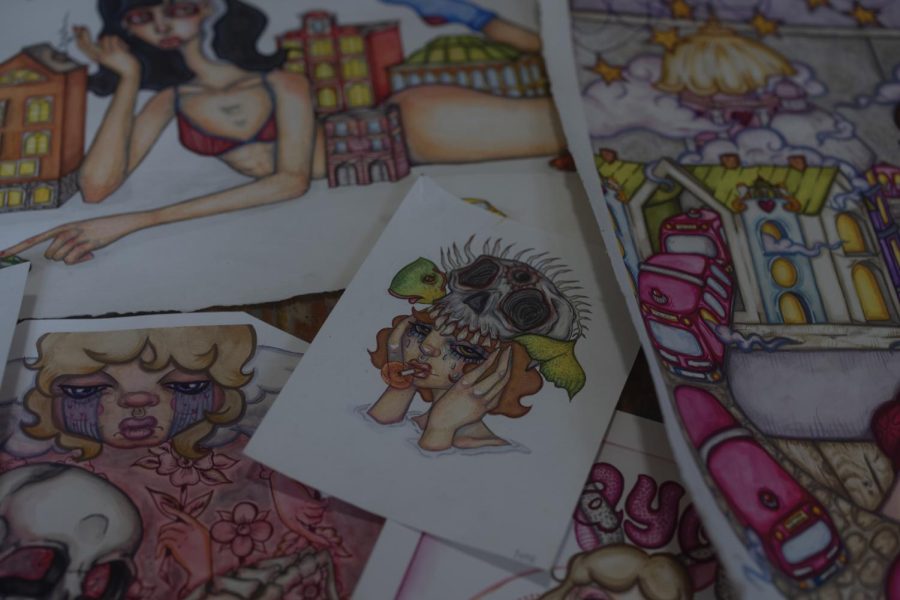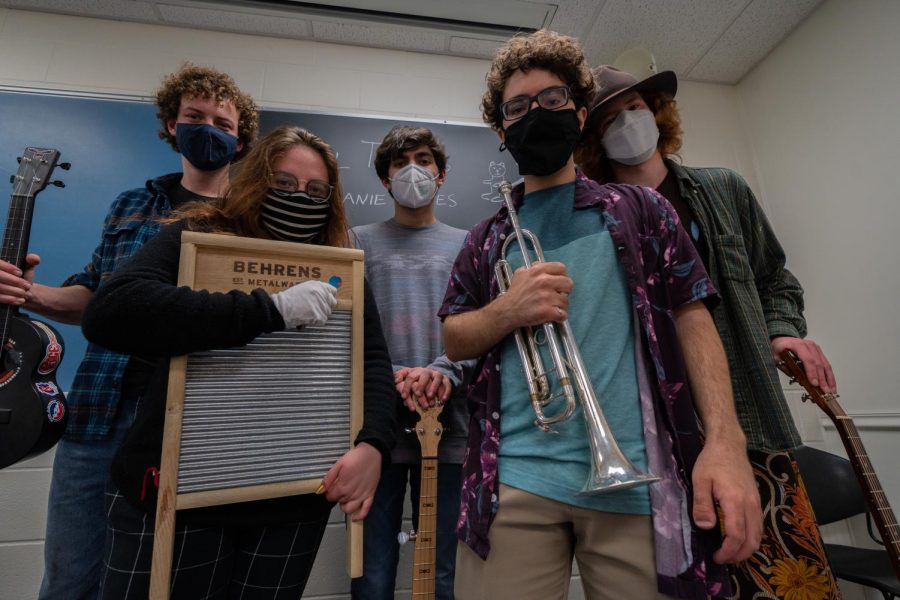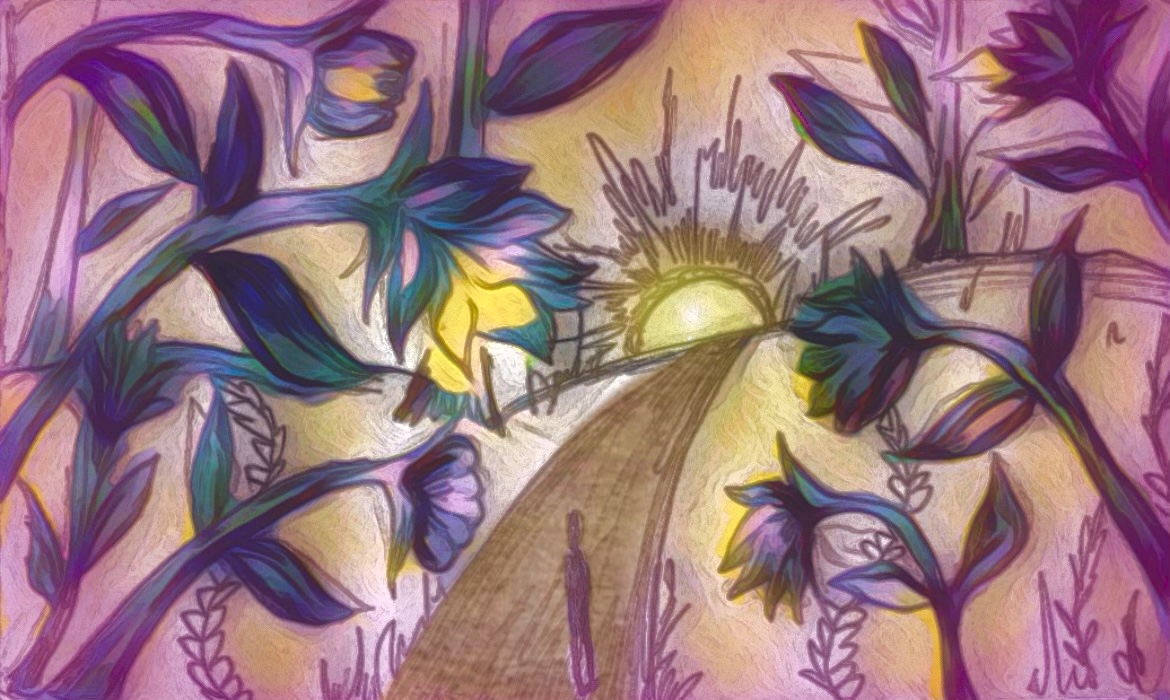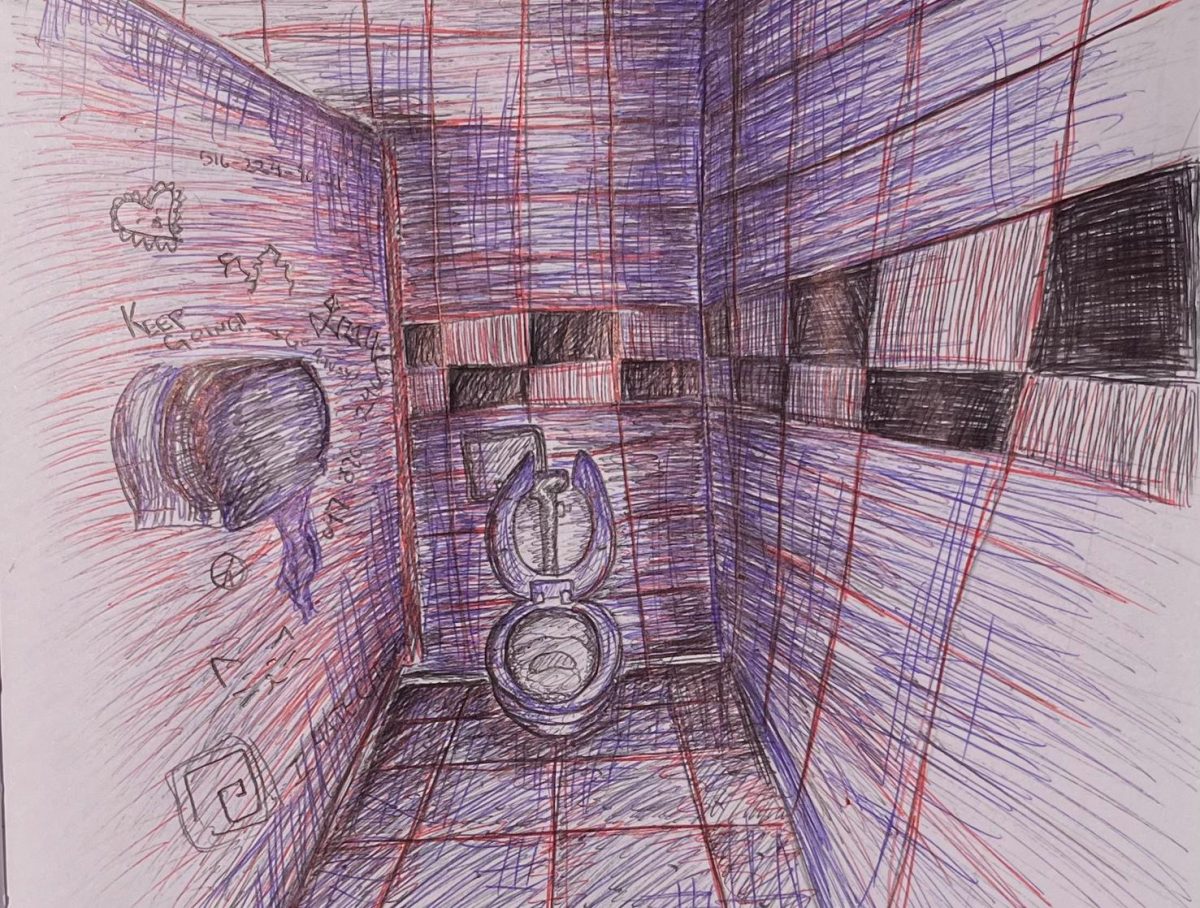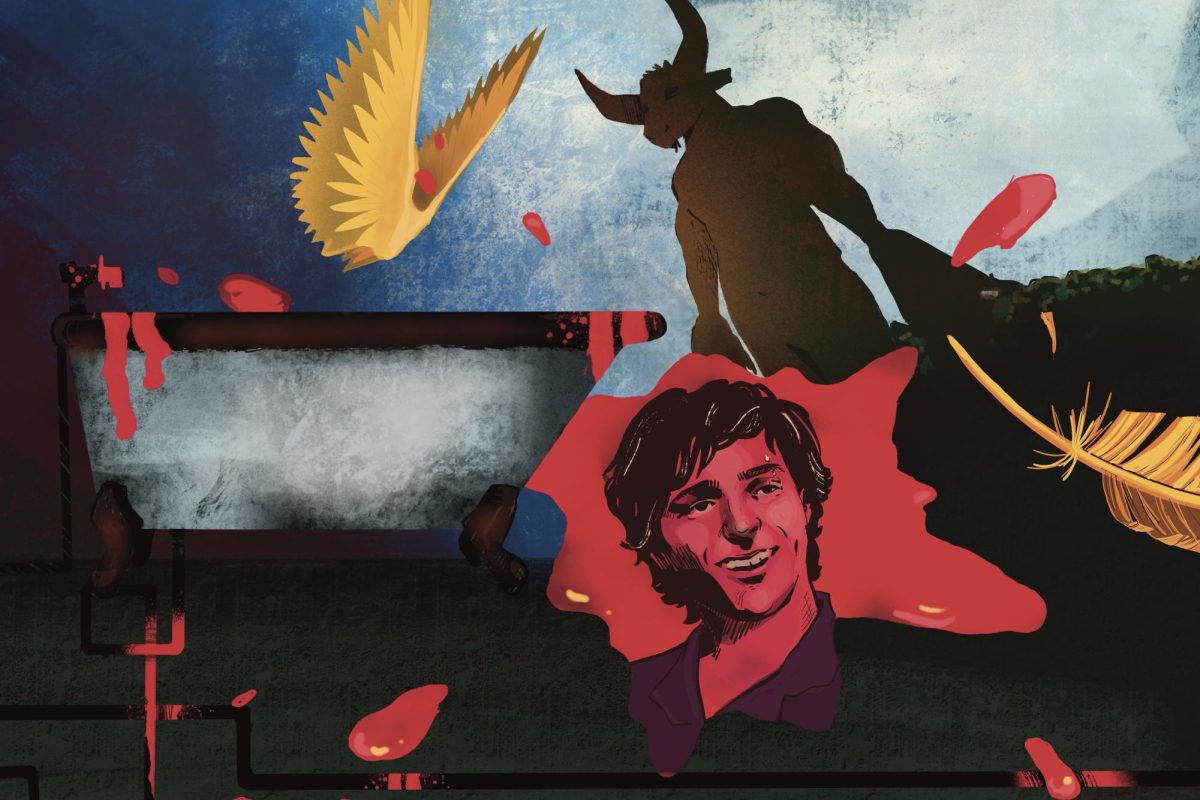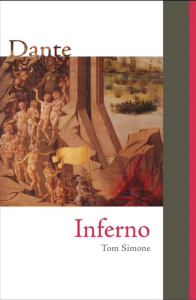
Reading Dante Alighieri’s “Divine Comedy” is an upward spiritual journey, not only for the story’s narrator, but also for the reader, who may be surprised to discover that the 700-year-old poem contains practical advice for self-improvement.
“Dante understands the great struggles of real life,” said UVM professor Tom Simone.
“He talks about serious human challenges and potential more than almost any other writer.”
Simone held a reading of his translation of “Purgatorio,” the second book in Dante’s trilogy, at Phoenix Books March 13.
German professor Wolfgang Mieder commented on his appreciation of Simone and Phoenix Books for sponsoring this event.
“It is good to see that town and gown get together so that the important work going on at the university is also shared with the Burlington community,” Mieder said.
Junior Cleo Rohn attended the reading and noted Simone’s passion for Dante. “He made a strong case for why Dante’s writings are not only significant in the contemporary world, but needed here,” Rohn said.
Simone said he has been translating the “Divine Comedy” since 2005. The poem, completed as a trilogy, was revolutionary in its time for being written in Italian rather than Latin, Simone said.
Simone, who is half-Italian, has since published his translations of “Inferno” and “Purgatorio,” the first two sections of the “Divine Comedy,” and is on sabbatical this semester to work on the final book, “Paradiso,” he said.
“I can’t emphasize enough what a heroic endeavor this is, the translation of the entire ‘Divine Comedy’” English professor Huck Gutman said.
Although the “Divine Comedy” already has multiple translations, Simone said he wanted to provide a translation of Dante’s work for modern times.
“Important works of the past need to be retranslated into the language of the current world,” he said. “I trust Dante and want to be as close to him as I can, as accurate as I can, but also understandable to the modern reader.”
Simone’s translations of “Inferno” and “Purgatorio” consist of an introduction at the beginning of each canto as well as annotations at the foot of the page.
Mieder said it was a good decision for Simone to place his explanatory notes at the bottom of the pages of his translation so that readers could easily access them.
“‘Inferno’ is about human suffering – human drama wrapped up in the self,” Simone said. Simone also said that human suffering is a condition Dante closely related to, having been exiled under threat of death from his native city of Florence for his political beliefs.
Human nature has changed little since Dante’s time, which makes the “Divine Comedy” that much more accessible for modern readers Simone said. Simone believes we are not distant from human unhappiness in the world.
“If you want to find ‘Inferno’ go down to Church Street or the old North End.” Simone said. “Go look where drug dealing, or violence or anger is let loose in our community.”
But human suffering is only part of the story, and, as Simone is famous for saying, “only reading ‘Inferno’ is to remain in ‘Inferno.’”
“Dante sees the potential of the human soul, sees possibilities of addressing unhappiness and wants a sense of curing the soul and allowing the souls to commune with one another and rise to a higher level of understanding and shared love,” Simone said.
“If you only read ‘Inferno’ you don’t realize the ‘Divine Comedy’ is about love.” In “Purgatorio,” Simone said Dante “addresses how might we move from obsessive or destructive behavior to a more positive sense of who we are.”
Simone, who has been teaching at UVM for over 30 years, said he continues to find new ways to appreciate Dante’s writing and to engage at a deeper level with the meaning of his work.
Simone’s reading also consisted of a presentation and question and answer at the end. “He combined his assessment of Dante with wonderful images of the poet-from his Italian contemporaries up through twentieth century artists like Salvador Dali-as a way to enable everyone who attended to ‘see’ Dante as well as hear him” Gutman said.
“Great writers are both engaging but also have many different levels, different aspects that as you come back to them or reread them or research a different one aspect of them you learn a good deal more,” Simone said.
Simone said the universal nature of Dante’s themes will ensure that his work flourishes in modern times.
“Dante understands the great struggles of real life, and I hope that students can get past it being difficult or old and unfamiliar to get echoes of Dante’s engagement of what he sees as real life, both its unhappiness but also its potential,” Simone said.
Simone teaches a seminar on the “Divine Comedy” every other fall semester.








